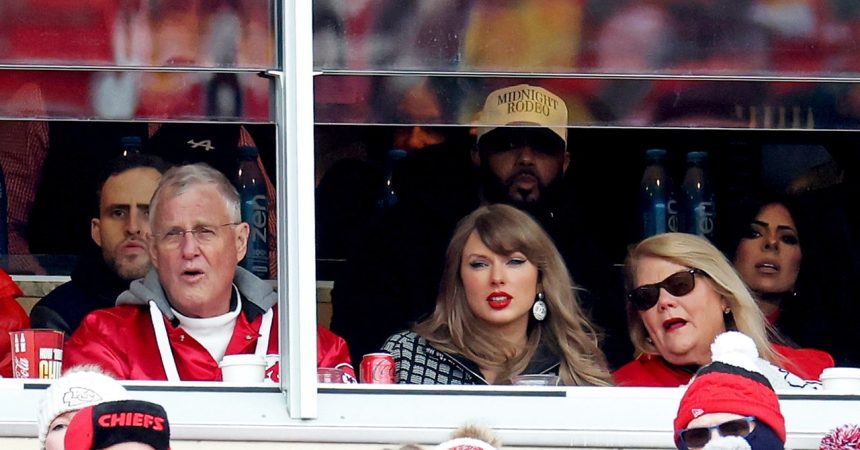The burgeoning romance between pop superstar Taylor Swift and Kansas City Chiefs tight end Travis Kelce ignited a flurry of interest in the sports betting world, a phenomenon dubbed the “Taylor Swift effect.” Sportsbooks anticipated leveraging this newfound attention to attract a wider audience, particularly women, to their platforms. The novelty of betting on Kelce’s performance, intertwined with the narrative of his high-profile relationship, offered a unique angle for attracting casual bettors. Sportsbooks saw this as an opportunity to capitalize on the crossover between entertainment and sports, hoping to convert Swift fans into sports bettors. While the initial frenzy surrounding the couple translated into increased betting activity, the effect waned as the relationship progressed and other news cycles, like the US election, took precedence.
The initial surge in betting activity surrounding Kelce, fueled by Swift’s presence at his games and the media attention their relationship garnered, demonstrated the potential of celebrity narratives to influence betting patterns. Sportsbooks were quick to recognize this trend, offering prop bets related to Swift’s appearances and Kelce’s performance, creating a buzz around the couple and drawing in a wider audience. This strategy aligned with the industry’s broader push to expand its reach beyond traditional sports fans, tapping into the entertainment and celebrity news sphere. The hope was that the Swift-Kelce narrative would not only attract new bettors but also retain them, converting casual fans into regular gamblers.
However, the sustained impact of the “Taylor Swift effect” proved to be less significant than initially anticipated. As the novelty of the relationship wore off and news cycles shifted focus, betting patterns surrounding Kelce normalized, aligning with those of other key players on the Chiefs. This suggests that while celebrity narratives can generate a spike in interest and activity, their long-term influence on betting behavior is limited. The initial excitement and media attention surrounding the couple provided a temporary boost, but it did not fundamentally alter the betting landscape. This underscores the challenge faced by sportsbooks in converting casual bettors drawn in by such narratives into consistent, long-term customers.
The attempt to capitalize on the Swift-Kelce narrative highlights a broader trend within the sports betting industry: the rise of narrative betting. This strategy moves beyond traditional bets on game outcomes and delves into the stories surrounding the events and personalities involved. From the Oscars and presidential elections to reality TV shows, the scope of betting narratives has expanded considerably, aiming to engage a wider audience with varying interests. This approach recognizes the power of storytelling in attracting and retaining bettors, particularly those less familiar with the intricacies of sports betting. By weaving narratives around events and personalities, sportsbooks aim to create a more engaging and accessible betting experience for a broader audience.
While narrative betting can attract casual bettors, seasoned gamblers often prioritize traditional analytical approaches, focusing on factors like team matchups, player statistics, and historical data. For them, the narrative surrounding a game or player holds less significance than the underlying statistical probabilities. This difference in approach underscores the distinct segments within the sports betting market: the recreational bettor, drawn in by narratives and entertainment value, and the serious gambler, focused on strategic analysis and maximizing returns. Sportsbooks must cater to both these segments, balancing the allure of narrative-driven bets with the analytical tools and information required by seasoned gamblers.
The use of celebrity narratives, like the Swift-Kelce romance, raises ethical questions about the targeting of potentially vulnerable audiences. Critics argue that such strategies could lure individuals unfamiliar with the risks associated with gambling into excessive spending. The accessibility of online betting platforms, coupled with the pervasiveness of celebrity culture, creates a potentially risky environment for those susceptible to gambling addiction. This raises concerns about the responsible marketing practices of sportsbooks and the need for effective regulations to protect consumers. While narrative betting can add an element of entertainment and engagement to the industry, it also necessitates a heightened awareness of responsible gambling practices and the potential for harm.



